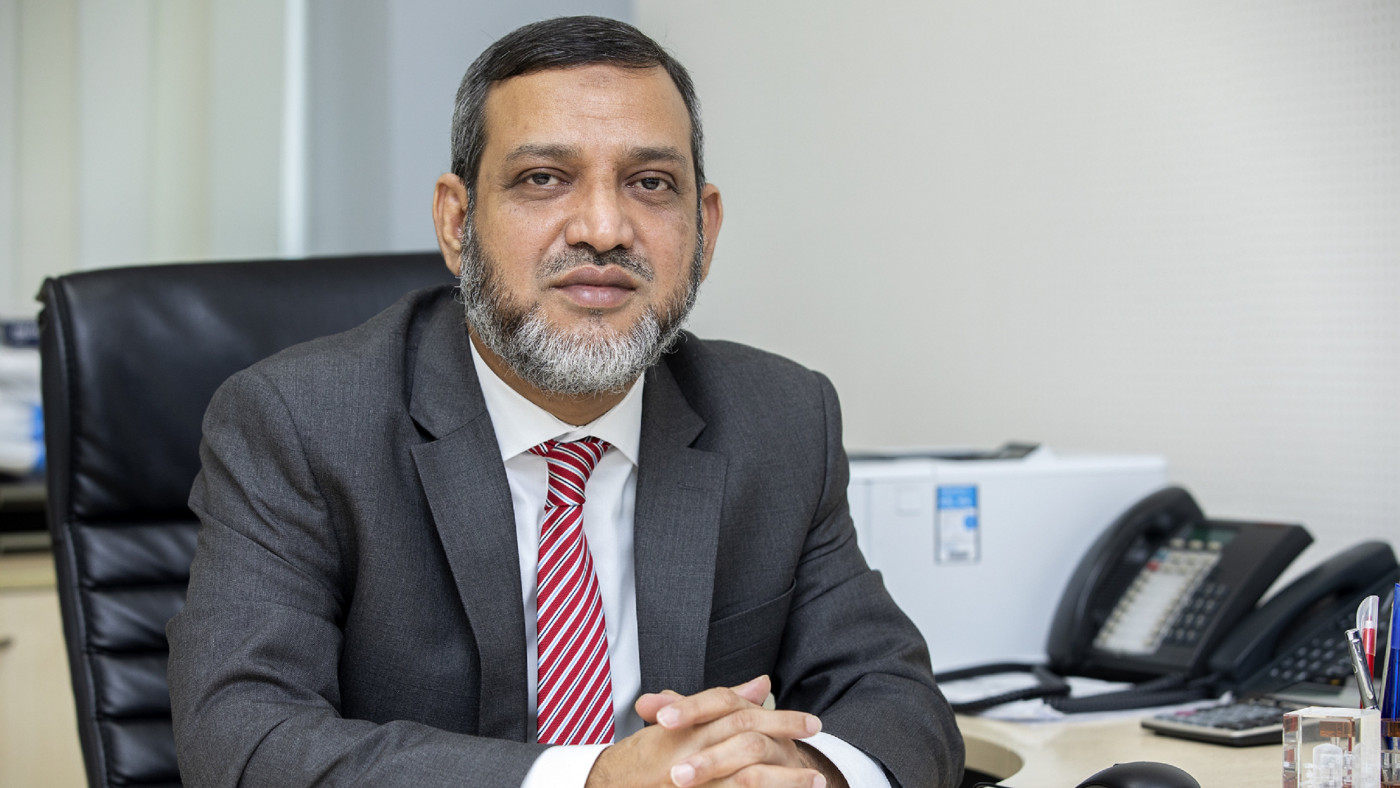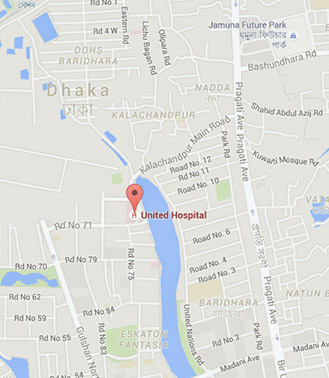MD & CEO of United Hospital Mohammad Faizur Rahman spoke to The Business Standard about its travails and journey so far, including how the hospital is coping with the ongoing pandemic.

We are committed to serving patients with right intention and sincere effort: CEO of United Hospital
On the occasion of the 14th founding anniversary of the United Hospital, CEO of United Hospital Mohammad Faizur Rahman spoke to The Business Standard about its travails and journey so far, including how the hospital is coping with the ongoing pandemic
On the occasion of the 14th founding anniversary of the United Hospital, Mohammad Faizur Rahman, acting managing director and chief executive officer of the hospital, spoke to The Business Standard about its travails and journey so far, including how the hospital is coping with the ongoing pandemic.
Faizur also shared their future plans and spoke about their willingness to work with the government for the development of private healthcare sector and eventually contribute to building a medical tourism industry in the country.
The Business Standard: The pandemic has tested the limits of private hospitals to treat Covid-19 patients. How did United Hospital deal with the situation?
Mohammad Faizur Rahman: The entire world was not prepared for such a devastating pandemic. We were learning about this virus, its mutation and the treatment protocol. But at the same time, we also had to act promptly as people were dying. We felt shaky and directionless but still we kept on moving ahead.
United Hospital turned out to be a quick learner and changed plans spontaneously. We coped up with the situation well. We developed our own protocol as per international guidelines, made significant infrastructural arrangements, took initiatives to train our clinical and non-clinical staff, ensured providing them with right quantity of Personal Protection Equipment (PPE) and also motivated them to serve their best by overcoming their own internal fears.
There were several challenges -- addressing safety issues, convincing the non-Covid-19 patients to come to the hospital and continue their regular treatments there, giving treatments to the Covid-19 affected patients and building capacity for them.
Amidst the chaotic situation, when patients were alleging that they were not getting proper attention in hospitals, we can say confidently that we were attentive in receiving our patients. In addition, we started receiving Covid-19 patients and tried our level best to give them comfort.
Later, when we got the permission to do Covid-19 test in our own RT PCR Lab, we could streamline the whole process and ensured Covid-19 testing for all patients admitted in our hospital, for the safety of all.
Now we have the highest number of ICU beds for Covid-19 patients than those in any other private hospital in the country. We have brought the highest number of high-flow nasal cannula, set up separate beds for corona patients, managed four times extra manpower, trained them properly, provided them with safety gears and set protocols. As a result, we have been able to deal with the situation bravely.
We are learning every day. I believe that we are more confident now to handle the situation.
TBS: The private health sector has seen a sharp fall in business during the pandemic. What are your suggestions to get over the losses?
MFR: We could not think of anything from business perspective amid this pandemic. For United Hospital, money is not primary motive. Our patients' satisfaction after taking our services is our priority and this is the way towards success.
In the health sector, we are concerned about providing services, and whoever enters this sector should be aware of this. When services are ensured, business will naturally go up.
If we can provide proper services to our 17 crore people, this sector will grow bigger than the garment sector because each of us will enjoy the fruits of it. So, services can never be compromised for our own interest.
TBS: As the trend of going abroad for treatments shows no sign of slowing down, what can United Hospital or the private healthcare sector in general offer to compete with world class facilities of India and Singapore?
MFR: Right away, we need to take up macro level planning. Every year, a huge number of our patients go abroad for taking treatment there. But due to Covid-19 pandemic, now they cannot fly to other countries. As a result, those patients are coming to us. If we can utilize this opportunity by proving that we have the ability to provide our patients with quality services, we will be able to build a strong baseline for the private healthcare sector. Thus we can stop patients from going abroad. Here the cost of healthcare is cheaper than that of other countries. So foreigners will also choose us for getting quality treatment at cheaper rates.
Through goodwill, commitment and services, we can reach people and earn their trust. I dream of a day when our medical tourism will flourish and people will come from different parts of the world to Bangladesh.
TBS: United Hospital stepped into the 15th year today. Where does it see itself in five years' time? What other services do you plan to offer in the future?
MFR: United Hospital cares about its patients and 95 percent of them are happy with our services. The rest gives us routine feedback, on which we keep working. While ensuring services, we might make a few mistakes but we want our patients to keep trusting us. We want to earn their trust by our sincere efforts, with right intention. To the patients, my message is -- Give us the opportunity to serve you; we will try our best to provide you with quality services.
To inspire more entrepreneurs in the private sector, we want to be the role model. Our aim is to make United Hospital a centre of excellence.
Our commitment to healthcare service is really high and we are always trying to expand. Last year, we got permission to set up a medical college. Now we are building a medical college hospital with 250-bed, which will be increased in near future.
We have signed an agreement under Public Private Partnership (PPP) with Bangladesh Railway to build a 500-bed hospital in Chattogram, which would increase availability and accessibility of tertiary healthcare to people.
In Jamalpur, a 200-bed hospital with tertiary healthcare facilities will be built as the part of a project of United Trust. Within the next two years, all these projects will take shape. By the next five years, United Healthcare with United Hospital as its flagship hospital will operate with at least around 1,750-bed capacity.
TBS: What are the key policies you think the govt should initiate to help the healthcare sector during and post the coronavirus period?
MFR: For us, there is actually no pre or post pandemic situation. We never know when another pandemic will attack us. Last year, we were concerned about a high surge in Dengue patients and this year, it is about coronavirus. So we do not know what is waiting for us next.
However, I have realized from my experience in the healthcare sector that there is a lack of skilled healthcare service providers. So, we need to focus on proper training and development of an adequate number of healthcare service givers. In other countries, the costs of healthcare services are cheaper due to subsidies from their governments and medical insurance. We need to grow in that aspect as well.
We need to increase spending in the entire healthcare industry from both government and private sectors for training human resources, building nursing institutions and hospitals and developing skilled technicians.
The government cannot solve the problem alone. The private sector should come forward from their social responsibility and work with the government together.
We should give effort to taking up proper strategy and policy, focusing on infrastructure development and designing an active service protocol. I also believe healthcare should be more about customer orientation and hospitality. When we will be able to make our people believe that we are ready and sincere in giving them proper services, they will automatically rely on us.



